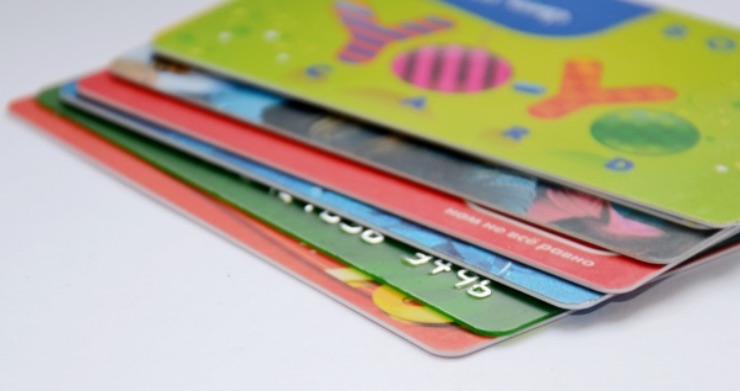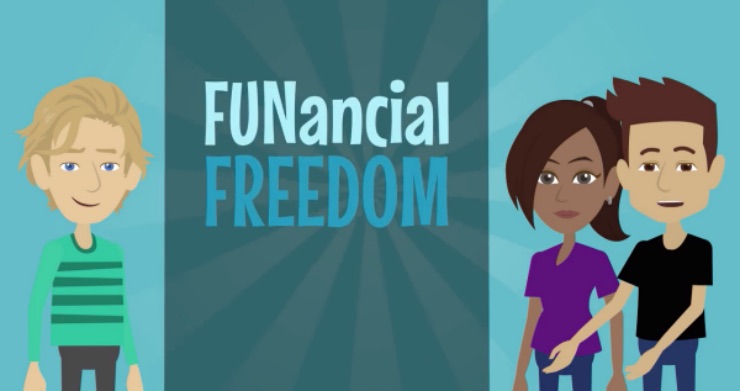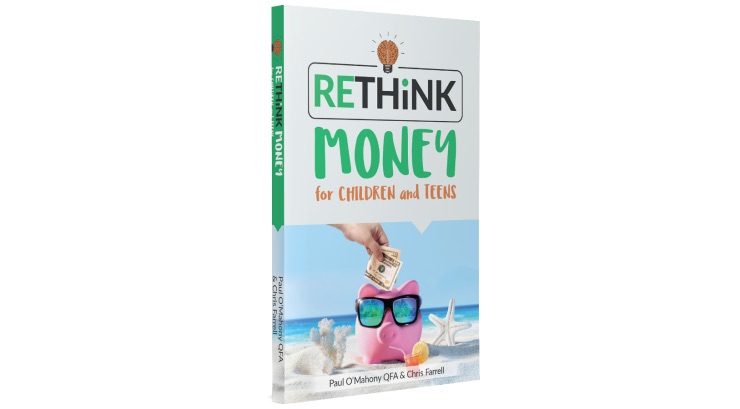5 Habits to Teach Kids to Stay Debt Free

Most people on the planet are in debt.
Debt is something that is hugely important to understand and has an impact on almost everybody in the world. When people are in debt and money is scarce, people become very stressed and emotional about it which impacts their quality of life. Understanding debt and how to avoid it is one of the most valuable skills you can teach your child or teen.
What Is Meant By Debt?

Debt means when you have money that is less than zero, in other words you owe more than you actually have. For people in debt this means the amount of money that they have borrowed to live on.
If people have taken out a loan this is what is known as debt. So for example, if you buy a house, this house loan is a debt called a mortgage.
Why Do So Many People Have Debt?
It is very easy to get into debt quickly, because debt is often used as a quick fix that somebody will use to get out of a problem. People will often do anything just to get some money quickly and then worry about paying it back sometime in the future. However, this is the habit that can lead to being in debt for an entire lifetime.
The Solution
Learning how to become financially smart is the best way to avoid debt. Understanding how debt is created and how to avoid it are important skills for your child or teen to learn at an early age. These skills can make all the difference to their success and happiness.
The most important thing to understand about debt is that once you are in it your life choices become limited.
Creating Good Money Habits
A habit is a routine of behaviour that is repeated regularly and tends to occur subconsciously. It happens subconsciously because it is either a learned or trained behaviour. Creating good money habits operates the
same way. So it is important to teach our children good money habits to avoid debt.
The money habits we learn as children are often carried over into our adult lives and usually affects every money decision we make.
Here are 5 empowering good money habits you can teach your child or teen.
1. Buy Used or Second Hand
2. Modelling Good Grocery Shopping Habits
3. Introduce Debit Cards Early
4. Encourage Saving
5. Encourage Giving
1. Buy Used or Second Hand

Buying used is a mindset that will set your child up for success. Unless you can buy something new that is an ‘investment’, that is, it can make you money, anything you buy new, becomes a ‘liability’, which means it costs you money. New things depreciate in value as soon as you buy them. There’s only a handful of things that should always be bought new; for most material possessions, used is best.
Here are the 6 top things you should always encourage your child or teen to buy used:
- Vehicles
- Clothes
- Books
- Sporting Goods and Gear
- Furniture
- Appliances
If we teach our kids the proper perspective on the true unimportance of material possessions, they won’t want the latest, greatest, and most expensive things.
Further Reading
2. Modelling Good Grocery Shopping Habits
Most people can save big $$$ when they grocery shop if they plan ahead. This includes being prepared mentally and emotionally for what is presented in the shop. Stores and Marketers spend vast amounts of money to understand how they can sell you more things, usually things you don’t need. Most of this is psychological and once you understand this, it can make a huge impact on your grocery bill.

Here are some ways to prepare for your grocery shop:
- Go to the store less often. That is, plan a bigger shopping day instead of just ‘popping in’ to grab 2 or 3 items.
- Plan your weekly meals ahead and write a list of everything you will need. Stick to the list!
- Look for ‘no-name’ brands over corporate brands for everyday products. Often you can save a lot for essentially the same product, but not the packaging.
- Try not to go to the store if you are emotional or ‘having a bad day’. Shopping releases biochemicals in our brain that make us ‘happy’, so if we go to the store already feeling ‘low’ we will buy more.
- Actively involve your child or teen in all these processes. They will model these habits and apply them when they start doing their own grocery shopping.
3. Introduce Debit Cards Early

“Never spend your money before you’ve earned it.” ― Thomas Jefferson
Debit cards are a great way to instill this foundational principle in your child or teen. Credit Cards are completely unnecessary … period! Debit cards will show them that there must first be money there to be able to spend it. If there is no money, then you can not make the purchase; super simple.
Did You Know?

In the Netherlands, citizens are encouraged to use only Debit cards. In fact, most stores you will not be able to use a Credit card. Crazy thought right? But the results speak for themselves, as Dutch people are one of the most debt free citizens on the planet and they have a high quality and standard of living.
Further Reading
7 Reasons The Dutch Don’t Do Debt
4. Encourage Saving

As your child or teen gets older they begin to think about money and usually the focus is on buying things. This is a great time for you to teach them the concepts of the importance of saving money and not just how to spend it.
The secret to becoming wealthy is learning how to save.
The key is teaching our children how to make saving a foundational habit and encourage them to have a savings system.
Further Reading
Saving...The Key Is To Start Young and Make Saving A Habit!
5. Encourage Giving
Did you know that giving actually makes us happier?

Studies have found that giving money to someone else can lift people’s happiness more than spending it on themselves.
Giving also creates empathy and can often help your child or teen better understand the very complex social issues of why some people have a lot of money and why some people have very little.
It can help them see outside their perceived wants and needs. This is especially the case when they help people who are struggling with basic needs like food or clothing. Or similarly when contributing to causes that need resources to create positive change, like animal or environmental protection.
Learning the importance of giving from an early age will empower your child or teen to lead an extraordinary life. One where they are aware of looking out for more than just themselves.
Staying Debt Free
Nobody wants debt, but the sad fact of the matter is most people are in debt. We need to address this or at least be aware of it.
Education is the key to becoming financially smart.
Financial literacy. Getting smart about money – is one of the greatest gifts you can share with your child or teen.
Have you heard about FUNancial Freedom?

FUNancial Freedom is an online program that offers step-by-step, hand-holding strategies for your child or teen to understand how to make, grow and scale their money. There is no other program that is as detailed, fully animated and FUN.
They have a great FREE resource for you to get your child or teen started on their financial education journey.

CLICK HERE
to download your FREE copy.
ReThink Money by FUNancial Freedom is an ebook that guides your child or teen through learning how to become financially smart. It offers practical guidelines used by children and teens all over the world on how they earn, manage finances, invest smartly, and set themselves up for a highly impactful and fun life.

To learn more about FUNancial CLICK HERE